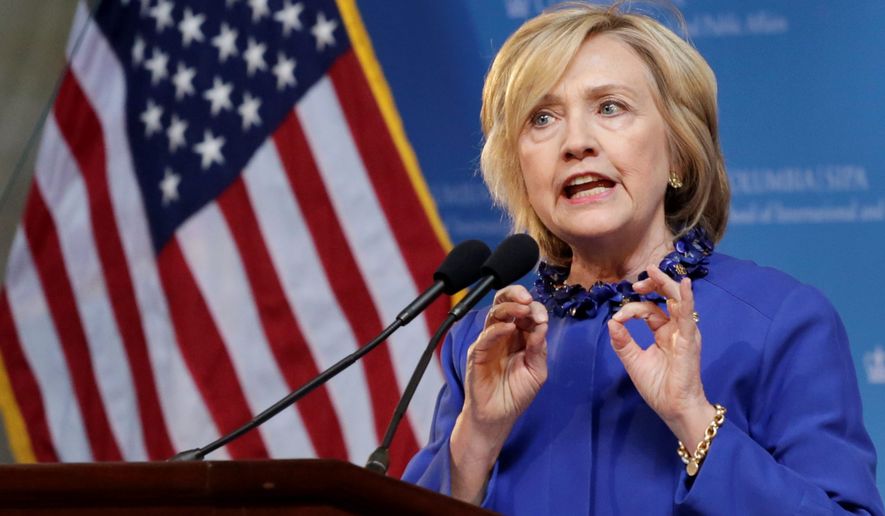OPINION:
The announcement by Hillary Clinton that she is running for president in 2016 has unleashed considerable speculation on how she will campaign and her chances for winning. One of the most prominent questions is whether she will make being a woman the centerpiece of her campaign. Taking this route however, may present several complications.
Recent polling by Pew, Gallup, and Rasmussen suggests that Americans are more ready than ever for a woman president and that almost 20 percent of likely voters would vote for a woman candidate for president simply because of her gender.
However, according to the Pew Research Center and Meredith College polls, the qualities Americans associate with effective political leadership in general and with female leaders in particular simply do not match up with the popular perception of Hillary Clinton.
Respondents believe women leaders are more honest, compassionate, and open to compromise than are men. In terms of negative leadership qualities, women political leaders are perceived to be less ambitious, arrogant, and stubborn than men.
Even before the revelations that Clinton used her private email account for official government business, there have been questions about her honesty. During her 2008 campaign, Gallup found that over half of Americans believed “honest” and “trustworthy” were not words that applied to her. Republican presidential candidate Rand Paul has already announced that he will make Clinton’s character a major part of his campaign strategy.
Women are often stereotyped as more compassionate than men, but in terms of campaign politics, the ability to understand and connect with citizens is very effective. This is why we often see candidates on the campaign trail eating hot dogs or rolling up their sleeves to have a beer with locals. Similarly, Clinton appears to be attempting to rebrand herself as someone who can relate to the average person by eating at Chipotle or spending time with her granddaughter, but the jury is still out given her perception as elite and aloof. It was Mitt Romney’s failure to overcome this perception that many credit for his loss in 2012, and voters may resent this characteristic even more in a woman.
Most Americans report wanting their political leaders to use compromise more to address problems and women are considered by voters to be more natural compromisers. Hillary Clinton has recently spoken on the importance of compromise to address partisan gridlock, but many voters remember her dogmatic stands on health care during her husband’s administration, as well as other partisan positions she has taken.
While not possessing the positive characteristics associated with women leaders, Clinton also possesses some negative traits associated with men leaders. Voters historically have been skeptical of politicians who seem too ambitious and willing to do anything to win the presidency. Women are often perceived as entering politics to fix problems, not gain power, but Clinton has been regularly excoriated in the press for being “pathologically ambitious,” going all the way back to her husband’s time in the Arkansas Governor’s Mansion.
Although those close to Clinton often comment on her personal warmth, it is her perception of being arrogant and condescending that dampens enthusiasm for Clinton among some voters. Her comments about not staying home and baking cookies made during the 1992 campaign or her testy responses during the Benghazi hearings fuel this belief.
Related to the perception of arrogance is that Clinton is very stubborn, a negative trait most associated with males. A supporter of the Iraq War, Clinton went years without talking about her position on the war despite sharp attacks from the left. Likewise with the email controversy, Clinton has yet to offer a clear explanation of the reasons why she failed to follow protocol even while it may be hurting her support in polls.
Put simply, Hillary Clinton is more associated with leadership traits Americans dislike in men that with traits they like in women, creating the possibility that running as a woman will backfire for her.
David McLennan is a visiting professor of political science and Whitney Ross Manzo is an assistant professor of political science at Meredith College in Raleigh, N.C. They direct the Meredith Poll.




Please read our comment policy before commenting.